Harmonizing Acceptance and Change in Substance Use Recovery

Dialectical Behavior Therapy (DBT), developed by Dr. Marsha M. Linehan, has established itself as a pivotal treatment approach for individuals battling addiction, especially where emotional dysregulation and impulsivity are prominent. Originally intended for treating borderline personality disorder (BPD), DBT's core principles of acceptance and change have been effectively adapted to address substance use disorders (SUDs). This article explores how DBT's structured framework integrates acceptance and behavioral transformation, its practical applications in addiction treatment, and the tangible benefits that emerge from this balanced approach.
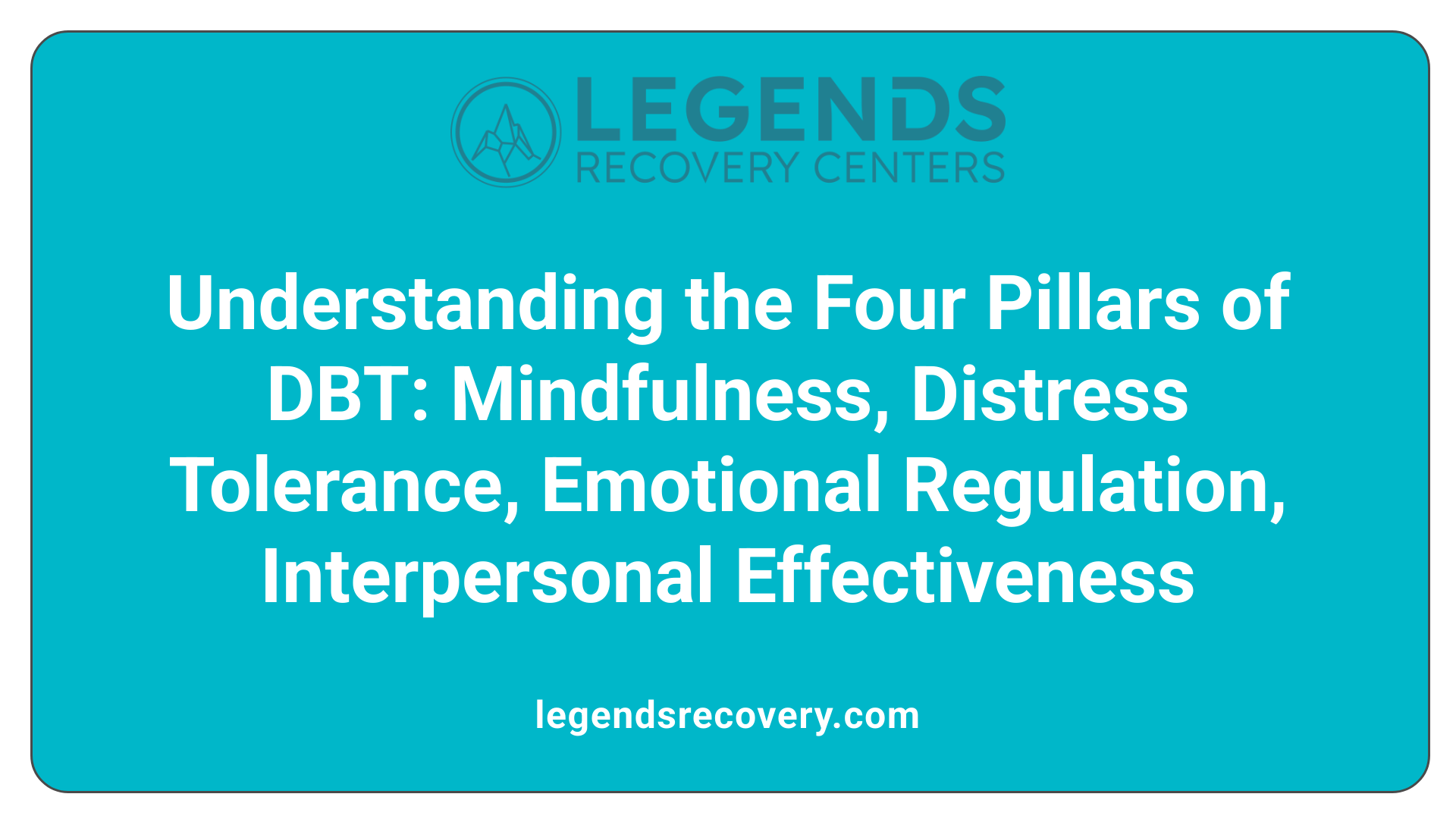
The fundamental ideas behind DBT in addiction focus on achieving a balance between accepting difficult emotional experiences and making meaningful behavioral changes. This approach recognizes that struggling with substance use often stems from intense emotions that are hard to manage.
DBT emphasizes four main modules:
Throughout therapy, validation of personal experiences plays a critical role. Recognizing and accepting emotional pain does not mean endorsing harmful behaviors, but rather acknowledging feelings as real and manageable.
Structured components of DBT include individual therapy sessions, group skills training, and coaching in real-life situations. These elements support a comprehensive framework that aims to promote emotional stability, reduce impulsivity, and improve interpersonal relationships.
By integrating acceptance with change strategies, DBT offers a powerful tool for individuals with addiction and co-occurring mental health issues. Its focus on dialectical reasoning and evidence-based practices makes it particularly effective in helping clients develop new coping mechanisms, maintain sobriety, and create a life worth living.
Dialectical Behavior Therapy (DBT) skillfully combines acceptance and change techniques to support recovery from addiction. The approach is grounded in core modules such as mindfulness and distress tolerance, which help individuals accept their current emotional states without judgment. By practicing mindfulness, clients learn to observe their thoughts and feelings objectively, reducing reactivity to cravings or emotional triggers.
Simultaneously, DBT emphasizes change strategies through emotion regulation and interpersonal effectiveness. These skills enable individuals to identify harmful patterns, regulate their emotions more healthily, and improve their relationships—an essential factor in maintaining sobriety.
A central dialectical principle in DBT involves synthesizing acceptance and change—acknowledging present realities while actively working toward behavioral improvements. Techniques like radical acceptance help clients fully accept their situations, including setbacks, without shame or resistance. Validation fosters a compassionate understanding of their emotional experiences.
On the change side, cognitive restructuring and behavioral activation facilitate healthier behaviors, such as resisting cravings or developing new, positive routines. By integrating these components, DBT addresses the complex emotional experiences that underpin addiction, empowering individuals to manage intense feelings while promoting lasting behavioral modifications.
This balanced method reduces impulsivity, enhances emotional resilience, and builds a sustainable recovery path by promoting acceptance of life's difficulties alongside proactive change efforts.
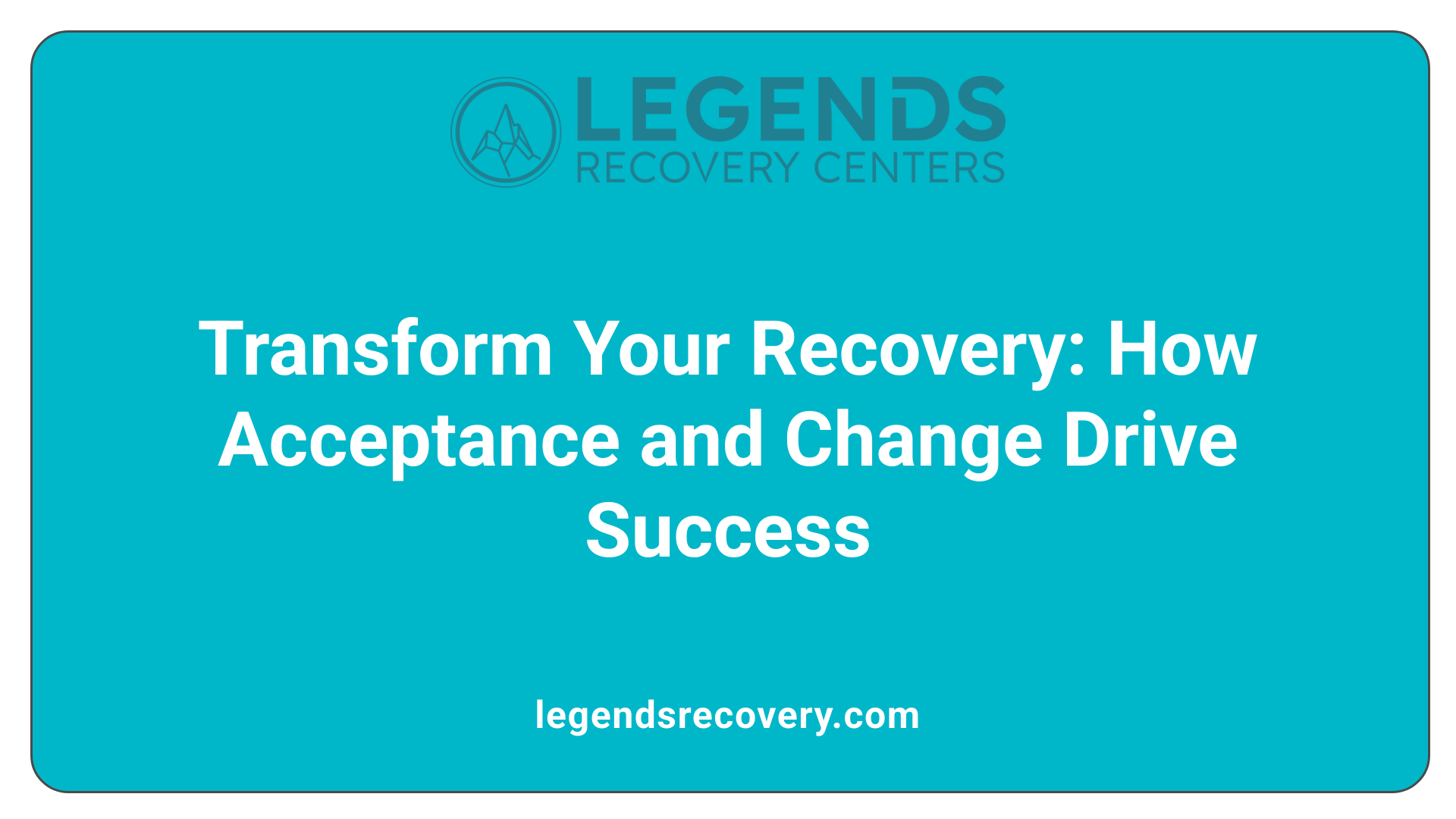
Implementing DBT’s dual strategies of acceptance and change can significantly enhance the recovery process for individuals struggling with addiction. Acceptance skills, such as mindfulness and radical acceptance, enable practitioners to observe their thoughts and emotions without judgment, fostering a non-reactive awareness of cravings and emotional triggers. This calm acknowledgment reduces impulsivity and the likelihood of relapse.
On the other hand, change-oriented techniques, including emotion regulation and interpersonal effectiveness, provide practical tools for managing distress, setting healthy boundaries, and addressing the root causes of substance use. These skills empower individuals to cope with challenging situations more adaptively.
The combination of these strategies—delivering therapy through individual sessions, group skills training, and coaching—builds resilience and nurtures self-acceptance. This integrated approach not only diminishes destructive behaviors but also boosts motivation, helping individuals maintain sobriety over the long term.
Enhanced emotional regulation means better control over intense feelings that often trigger substance use. Developing healthier coping mechanisms, such as mindfulness or distress tolerance skills, helps manage cravings and emotional turbulence.
Moreover, this approach encourages greater self-awareness and resilience, enabling individuals to reflect on setbacks as learning opportunities rather than failures. Over time, these benefits promote sustained recovery, improved mental health, and a more fulfilling life free from drugs and alcohol.
Research even suggests that adopting these strategies fosters increased self-efficacy and long-lasting accountability, which are crucial for overcoming addiction's persistent challenges.
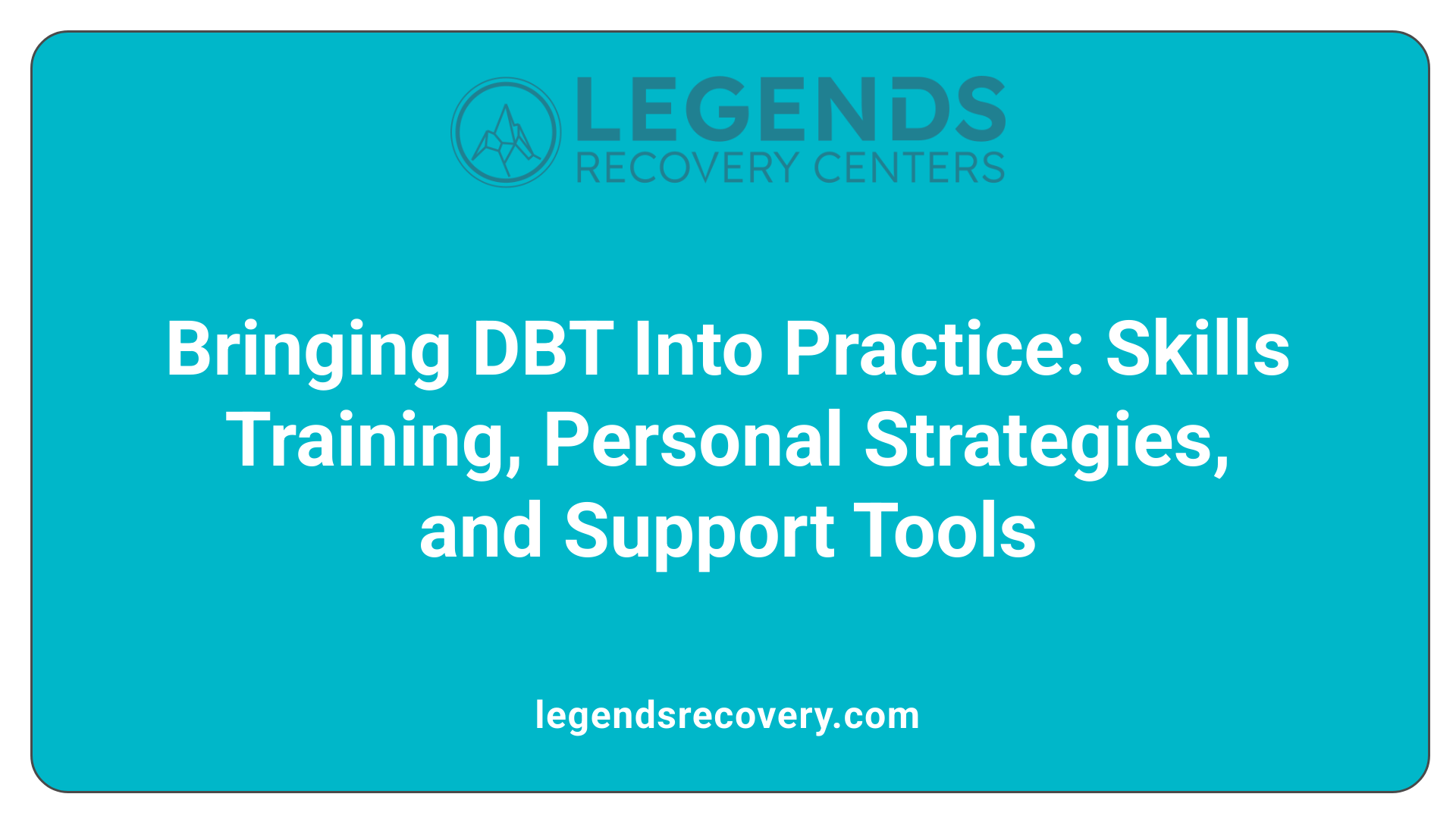 Implementing Dialectical Behavior Therapy (DBT) principles in addiction treatment requires a structured approach that integrates core skills training, personalized coping strategies, and ongoing support mechanisms.
Implementing Dialectical Behavior Therapy (DBT) principles in addiction treatment requires a structured approach that integrates core skills training, personalized coping strategies, and ongoing support mechanisms.
A central element involves teaching and applying the four main DBT skills: mindfulness, distress tolerance, emotion regulation, and interpersonal effectiveness. These skills help individuals manage cravings, regulate intense emotions, and improve relationships, which are often disrupted by substance use.
Clinicians typically develop tailored programs that promote abstinence by helping clients recognize and respond to emotional triggers and high-risk situations. This involves creating coping strategies such as mindfulness exercises to facilitate awareness, radical acceptance to reduce resistance to uncomfortable feelings, and effective communication skills to rebuild social support.
The use of skills groups forms a foundation where clients learn and practice each skill in a safe environment. This is complemented by individual therapy sessions focused on applying these skills to real-life situations and addressing personal challenges. Phone coaching provides immediate support during cravings or crises, reinforcing skill usage in moments of need.
Setting short-term abstinence goals is crucial, allowing clients to focus on achievable milestones that reinforce their motivation and confidence. Hierarchical addressing of high-risk behaviors—starting with reducing or avoiding specific triggers—helps in gradually building resilient recovery habits.
Fostering validation and motivation is equally essential. Therapists validate clients' feelings and experiences, helping them accept their current realities without shame while simultaneously encouraging positive change. This dual focus maintains engagement and helps sustain effort toward sobriety.
Overall, effective implementation of DBT in addiction programs combines skill development, trigger management, personalized support, and motivational strategies. This comprehensive approach can significantly increase treatment retention, decrease relapse rates, and promote sustainable recovery.
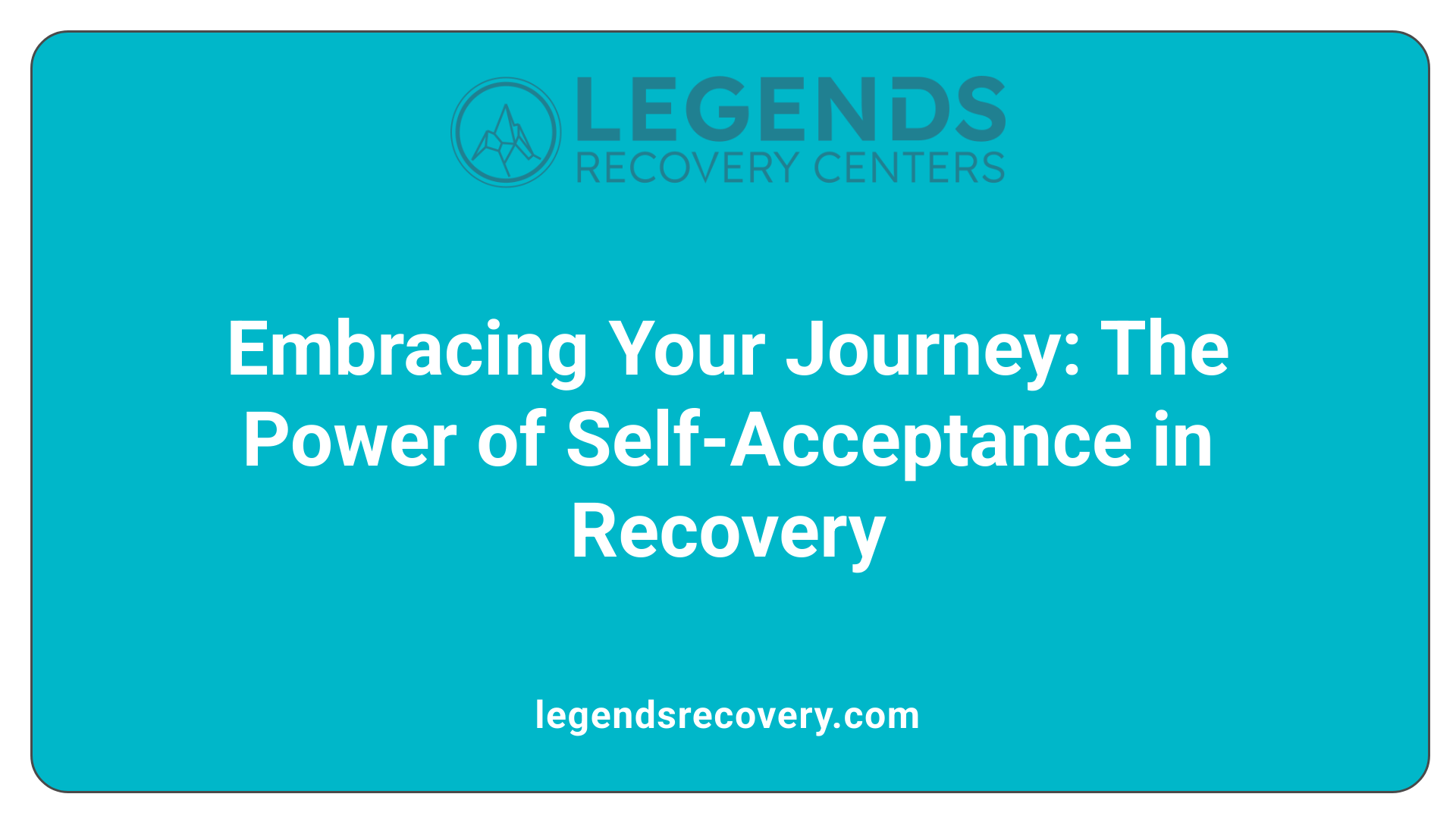
Acceptance plays a vital role in the journey of recovery from addiction. When individuals accept their addiction as part of their identity, they can approach treatment with honesty and openness, which are crucial for meaningful change. This acknowledgment dissolves shame and denial, creating a foundation for emotional healing.
By accepting addiction as a part of themselves, people can break free from destructive cycles of control and avoidance. Instead of fighting against their reality, they begin to explore underlying emotions and triggers with curiosity and compassion. This shift encourages seeking help and being vulnerable, essential steps toward healing.
Fostering self-compassion is equally important. Recognizing that mistakes are part of the growth process allows individuals to treat themselves kindly, rather than harshly judging their past behaviors. Understanding that setbacks are opportunities to learn builds resilience and resilience further enhances self-worth.
Building resilience involves creating a stable sense of self that can withstand cravings and triggers. Self-acceptance provides this stability—it reassures that imperfection is natural and manageable. This mindset helps sustain motivation and commitment to sobriety.
Tools such as mindfulness, therapy, and spirituality support ongoing acceptance. Mindfulness practices help individuals observe their thoughts and feelings without judgment, reinforcing self-awareness and acceptance. Therapy offers a safe space to explore personal struggles, while spiritual practices can provide purpose and deeper understanding.
Ultimately, accepting addiction as part of oneself is about embracing the full human experience. It enables a person to move forward with confidence, resilience, and an honest commitment to living a sober, meaningful life. This acceptance transforms shame into strength and vulnerability into growth, creating a solid foundation for lasting recovery.
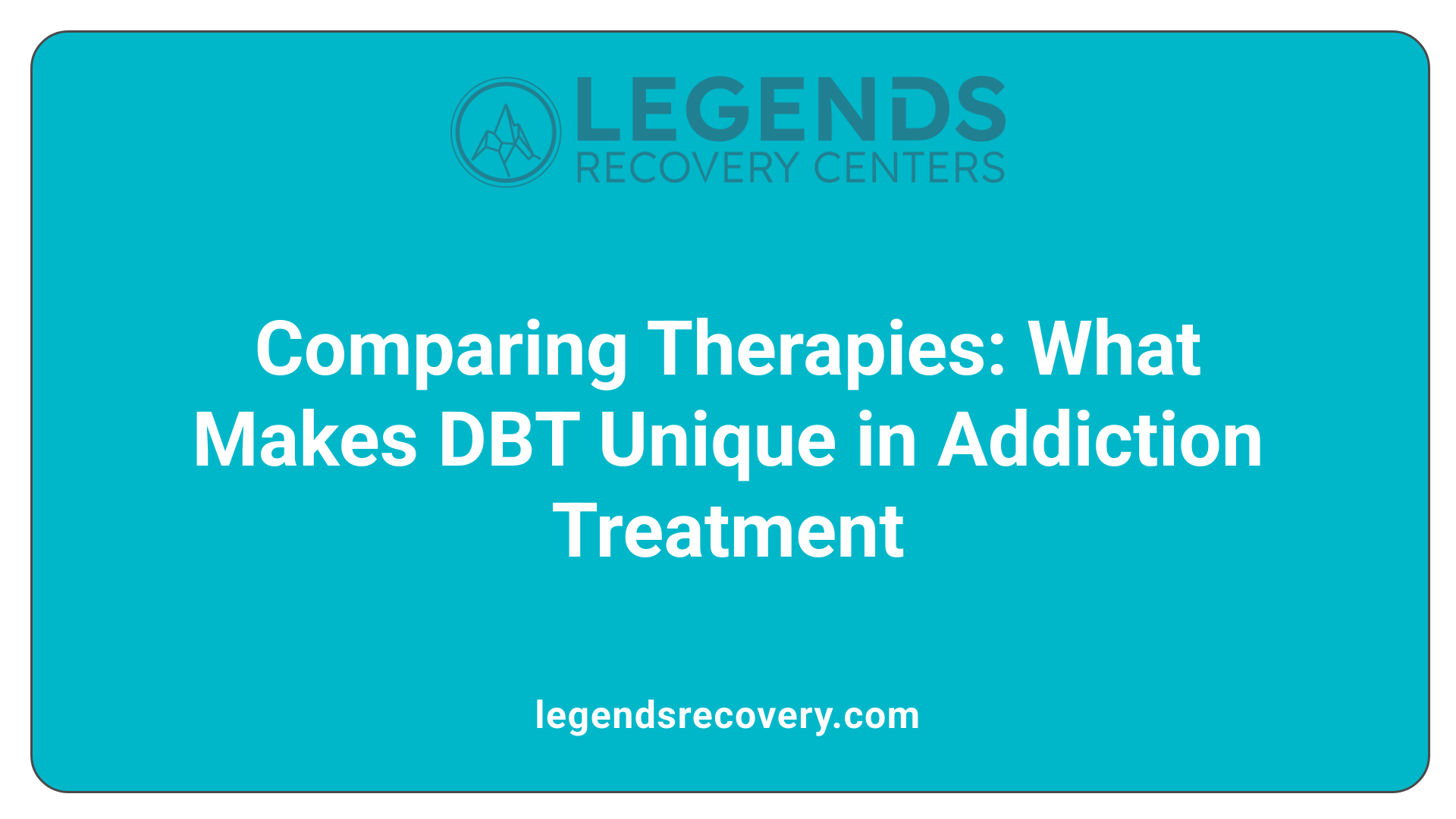
Dialectical Behavior Therapy (DBT) shares some similarities with Cognitive Behavioral Therapy (CBT), particularly in its focus on changing problematic behaviors and thought patterns. Like CBT, DBT incorporates skills training in areas such as emotional regulation and distress tolerance. However, DBT places a stronger emphasis on mindfulness and validation, aspects borrowed from Buddhist practices, making it a unique blend within behavioral therapies.
In contrast, 12-step programs like Alcoholics Anonymous (AA) tend to focus on peer support, spiritual principles, and ongoing abstinence without structured skill-building components like mindfulness or emotion regulation. While 12-step models promote acceptance of powerlessness over addiction and reliance on a higher power, DBT actively teaches skills to manage emotions and behaviors, often complementing 12-step approaches.
A hallmark of DBT is its principle of validation. Therapists validate a client’s feelings and experiences, which fosters trust and acceptance. This approach helps reduce shame and defensiveness and encourages open communication.
Dialectics — the idea of synthesizing opposing ideas — is fundamental to DBT. It balances acceptance of current circumstances with the urge or need for change. This ongoing tension helps clients accept themselves while striving for growth.
Mindfulness is another core skill that teaches individuals to observe their thoughts and feelings without judgment. This practice enhances emotional awareness, reduces impulsivity, and helps identify triggers before they escalate into problematic behaviors.
DBT uniquely advocates for simultaneously accepting oneself and striving for change. This dual focus is integral to its success. Techniques like radical acceptance help clients embrace difficult emotions or life circumstances they cannot change, reducing emotional suffering.
At the same time, DBT aims to promote behavioral change through skills like emotion regulation and interpersonal effectiveness. This balance is crucial, particularly in addiction treatment, where acceptance of cravings and triggers must coexist with efforts to abstain and develop healthier coping strategies.
Research consistently supports DBT’s effectiveness, especially for individuals with Borderline Personality Disorder (BPD) and co-occurring conditions such as substance use disorders. Studies show reductions in self-harm, suicidal behaviors, and substance abuse episodes.
In addiction-specific settings, evidence suggests DBT enhances treatment engagement, reduces cravings, and improves emotional stability. The approach’s emphasis on skills training and validation makes it a solid, evidence-based option for complex clients. While more research is ongoing regarding populations with substance use disorders alone, DBT’s positive outcomes for dual diagnoses reinforce its clinical value.
| Approach | Focus | Unique Aspects | Supporting Evidence |
|---|---|---|---|
| CBT | Changing thoughts and behaviors | Structured skill training | Effective for many mental health conditions but less emphasis on validation |
| 12-step Programs | Peer support, spiritual growth, abstinence | Spiritual principles, community | Widely used but lacking structured skill-building and therapy component |
| DBT | Emotional regulation, validation, mindfulness | Balance of acceptance and change, dialectics | Strong evidence for BPD and co-occurring disorders; promising for addiction treatment |
Overall, DBT stands out by integrating validation, mindfulness, and dialectical thinking, making it particularly effective for individuals facing complex emotional and behavioral challenges, including addiction.
Ongoing research continues to support Dialectical Behavior Therapy (DBT) as an effective approach for treating addiction and co-occurring mental health issues. As clinicians gain more insights, DBT is expanding beyond its original scope, incorporating new techniques to address the complexities of substance use disorders. This growing body of evidence suggests potential for integrating DBT with other treatment modalities, such as medication-assisted therapy and traditional 12-step programs, creating more comprehensive care plans that address emotional regulation, behavioral change, and social support.
To maximize the benefits of DBT, proper therapist training and strict adherence to treatment protocols are essential. Well-trained professionals can better facilitate skills development, ensure treatment fidelity, and support clients through their recovery journey. Additionally, ongoing supervision and continuous education help therapists stay current with evolving practices and research findings.
Supporting long-term recovery and resilience is a central goal of future DBT applications. Emphasizing skills like distress tolerance, mindfulness, and emotional regulation can empower individuals to handle setbacks without relapse, fostering sustained sobriety. Long-term follow-up studies are needed to assess how DBT promotes enduring change, but initial results are promising, indicating that integrating DBT into ongoing recovery plans helps individuals rebuild healthier relationships, improve emotional stability, and develop resilience against future challenges.
Overall, the future of DBT in addiction treatment looks promising as research expands, modalities evolve, and therapist expertise grows. These developments aim to enhance treatment effectiveness, improve quality of life for individuals in recovery, and support sustained well-being.
Incorporating acceptance and change through DBT offers a comprehensive pathway to overcoming addiction. By validating clients’ emotional experiences while equipping them with practical skills for behavioral change, DBT fosters resilience, emotional stability, and sustained sobriety. The therapy’s adaptable, evidence-based framework promises continued evolution in addiction treatment, emphasizing the importance of skilled therapists and integrated approaches to support long-term recovery and improved quality of life.